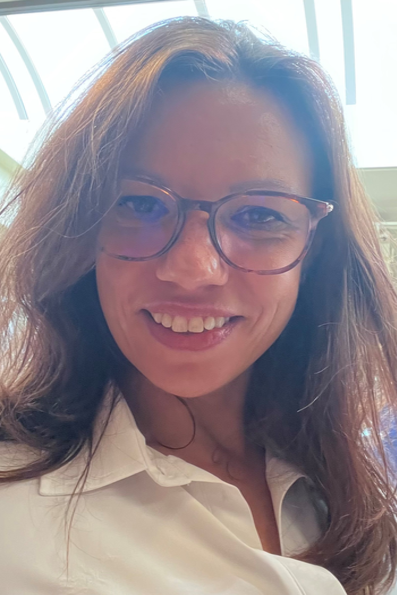Noëlle is particularly passionate about the university's small-scale programmes, having studied French at the faculty herself. We interviewed Noëlle Swaan for our series on Active Blended Learning for this edition of the Education on Course newsletter.
How do you implement Active Blended Learning in your policies and in your work?
My team consists of policy makers and learning technologists. Together, we work on different projects whereof one is ABL. I am in direct contact with the faculty board, which supports us in implementing our vision of ABL at the faculty. My job is to organize the structure, so, I take care of the administrative side of implementing this vision. For us, it is really important not to just decide on policies and order their implementation. Rather, we focus on every program specifically. As the faculty is very diverse, we run a portfolio analysis for each programme to see what is needed, what the programme requires, and what its ambitions are. We then adapt the program’s ABL curriculum accordingly, so it is custom-made. This is a very large part of the work we are doing at this moment. It consists of looking at each programme and analyzing where we can find opportunities in ABL.
On the other hand, we have our learning technologists who are working on the floor with the teachers every day and help them with their ABL methods and tasks. They have a lot of expertise. They can advise teachers about didactics, tools, and about working with a digital environment like Canvas. Overall, the learning technologists help teachers with any questions they have.
How would you describe the teachers’ attitudes toward working with ABL?
Most of our classes at the school are small scale. So the teachers have very intensive contact with students already and that makes it easier for them to have a very active interaction with the students. The use of digital tools varies per programme.
Some of the teachers are surprisingly advanced in using different kinds of tools. To give feedback to students, they use different kinds of tools, such as FeedbackFruits. They also make knowledge clips to give more information about certain topics, so they are very active already. Also,it’s about collaboration. The VU has a clear vision about ABL, and teachers are well informed about it, which is helpful. My team has good contact with VU colleagues, to stay updated and get well informed. I am also very excited about the plans to create the Centre for Teaching and Learning at the VU. Having one place that connects everyone involved in education and where teachers can go for advice on how to implement ABL is very helpful.
How would you say students benefit from active blended learning?
One example would be in programmes that have a lot of papers. Being able to receive feedback digitally and automatically through various tools provides the opportunity to do it more often and it is very beneficial for students. Furthermore, in the arts programmes, during Covid, they started making digital flashcards to do arts exercises. So, those kinds of things are very helpful for students.


